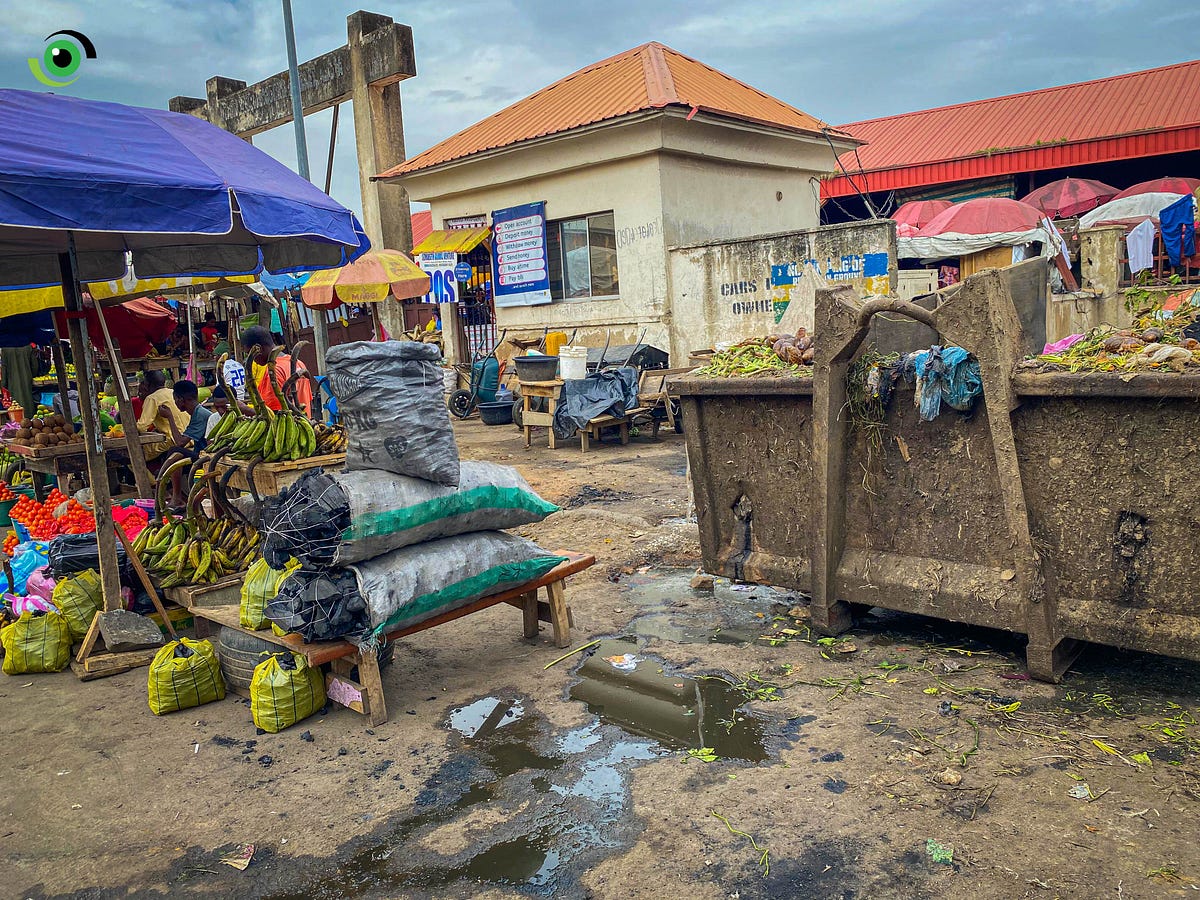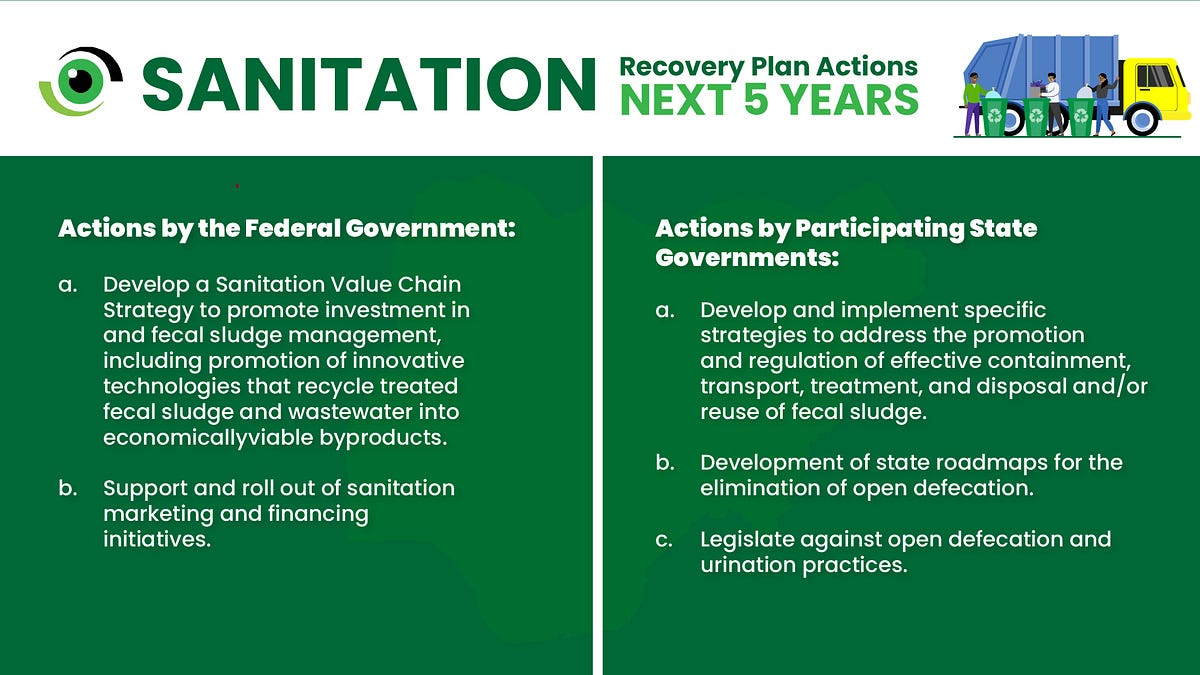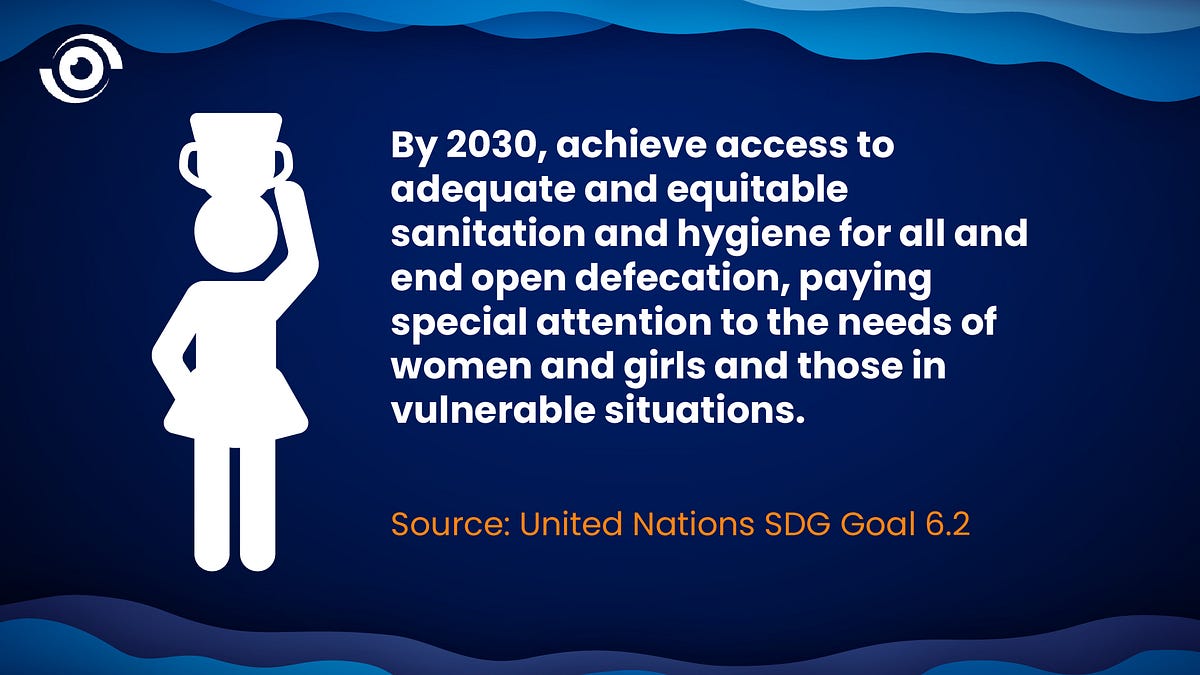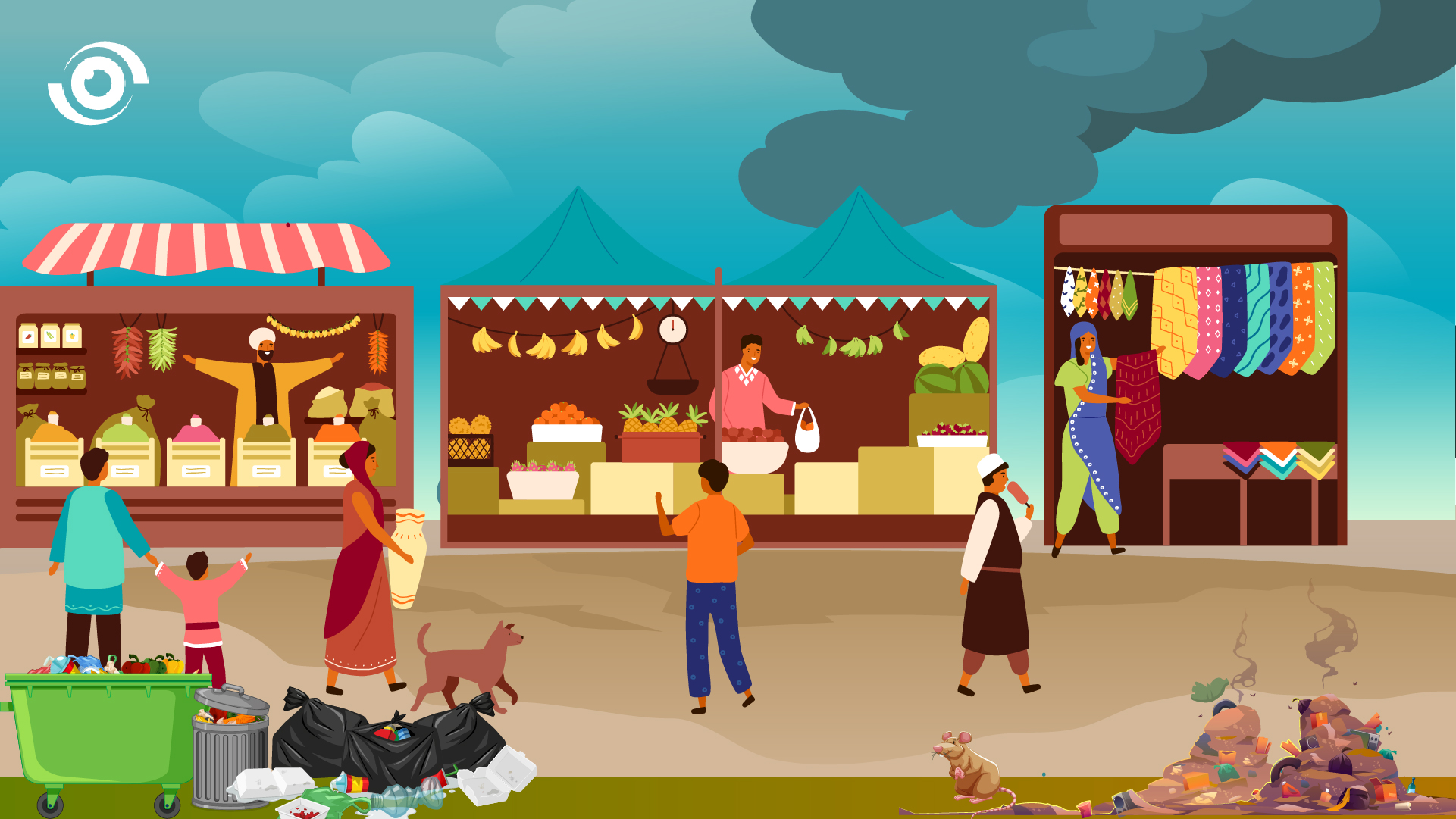Sanitation and hygiene are cost-effective approaches against infectious diseases. However, this relatively inexpensive way of preventing infectious diseases seems to be neglected in most markets in Nigeria. The World Health Organisation (WHO) reports that an estimated 100 million Nigerians lack basic sanitation facilities.
The poor sanitation in Nigeria’s markets should be a matter of greater concern to buyers, sellers and policymakers. Shoppers often have to walk past open gutters and discarded refuse as they move about the marketplace, traders sell amidst the refuse dumps, and so shoppers are left with limited options, but to buy their food items from the dirty and unsanitary market stalls.
Last week, the Nigeria Health Watch Team visited Utako market in Abuja. It was not the most pleasant sight. We observed the poor sanitation and hygiene in the market, refuse dumps, toilets, shops and food stands are in very close proximity with each other, with hardly any demarcation separating the different amenities in the market. Offensive odours permeated where sellers sold their items. There were areas within the market where open urination is practiced regularly, and flies and other vectors of infectious diseases were seen perching and feasting on uncovered food items for sale. This is the sad reality of most Nigerian markets, and it contributes to the spread of infectious diseases and environmental degradation because poor sanitation provides an excellent breeding ground for many of the diseases that affect Nigerians.

In 2018, President Muhammadu Buhari declared WASH a public health emergency in Nigeria. According to the National Water and Sanitation Policy, between 5 to 20 percent of deaths from diseases such as Lassa fever, diarrhea, cholera, typhoid, para-typhoid, guinea worm and Schistosomiasis in Nigeria is due to poor sanitation. This is not acceptable; poor sanitation is a threat to public health and we cannot prevent epidemics with our markets in poor hygienic conditions.
Increased budgeting for epidemic preparedness is a great move in preventing epidemics. The World Bank estimates that Nigeria needs to triple its budget or allocate at least 1.7 percent of the current Gross Domestic Product to WASH in order to achieve Sustainable Development Goal 6.2, which states the need to achieve access to adequate and equitable sanitation and hygiene for all and end open defecation, paying special attention to the needs of women and girls and those in vulnerable situations by 2030.

The COVID-19 pandemic has proven that improved sanitation and hygiene can help to prevent the spread of diseases. There is therefore the need to ensure that people have access to water, sanitation and hygiene (WASH) facilities in their homes and in public. It is also crucial to enforce the use of these facilities where they are provided.
The vision for sanitation in the National Action Plan for Revitalization of Nigeria’s WASH Sector highlights that by 2030, every Nigerian will have access to safely managed sanitation and hygiene facilities in cities, small towns, and rural communities.

Increased and sustained political will is required at all levels to generate commitment and interest in sanitation activities for improved coverage.
The solution to poor sanitation will require strengthened multi-sectoral collaboration. Federal, state and local governments, Federal and State Ministries of Environment and Water Resources, MDAs like the Abuja Environmental Protection Board and its state counterparts. NGOs, development partners, the private sector, communities, households and individuals must take responsibility in fighting the WASH crisis.
To address the enormous problems of environmental sanitation in Nigerian markets, policies like the National Action Plan for Revitalization of Nigeria’s WASH Sector must be translated into action.
Here are eight things that government, organisations and individuals can do to prevent the spread of diseases in Nigeria’s markets:
(1) Provision of a stable water supply, installing sturdy water supply systems that provide a regular flow of water for market sellers and buyers. This may include the construction of boreholes and water reservoir systems.
(2) Provision of hand-washing facilities at designated points throughout markets where market sellers and buyers have ease of access and use. This may include wash kits consisting of water buckets with lids, liquid antiseptic hand soap, and disposable napkins.
(3) Provision of separate toilets for men, women, children, and people living with disabilities which should always be kept clean, with regular access to water and other sanitary commodities.
(4) Create awareness and the sensitization of market sellers to enforce the practice of safe storage and sanitary disposal of refuse in markets.

(5) Timely and regular disposal of waste from the central waste disposal sites in markets. Due to the large volume of waste produced from markets, there should be daily collection of waste by designated waste collection agencies.
(6) Improved drainage systems in markets. Drainage systems in markets should be kept clean with designated agencies responsible for maintaining the drainage systems at regular intervals.
(7) Conduct regular market sanitation and fumigation exercises. Weekly, monthly and quarterly cleaning and fumigation exercises must be carried out in markets. This ensures that markets remain clean and it would help in warding off harmful rodents and other pests.
(8) Effective market sanitary management associations. The establishment of sanitary management associations in markets is key to enforcing and ensuring set rules, regulations and expectations in the cleanliness and hygiene management of markets.
Infectious diseases can and should be prevented. Otherwise, as COVID-19 has shown, when they happen, they can change everything about our lives, economy, and business. We must begin now to do the simple things, such as keeping our markets clean, to prevent the spread of infectious diseases.


